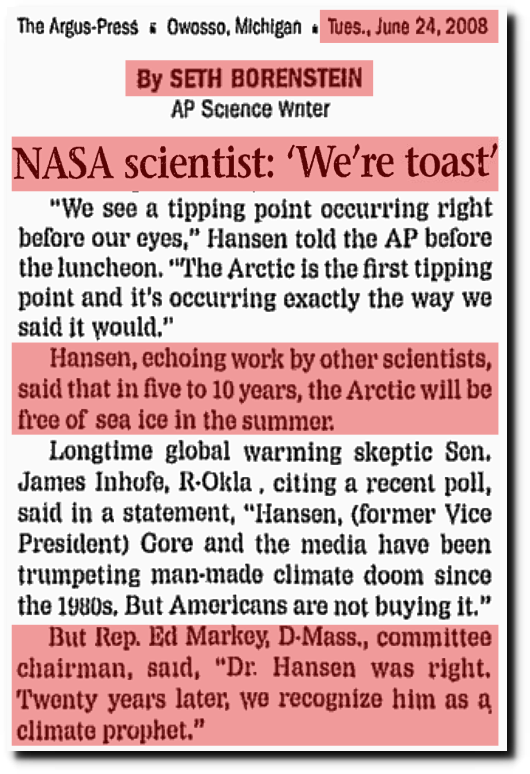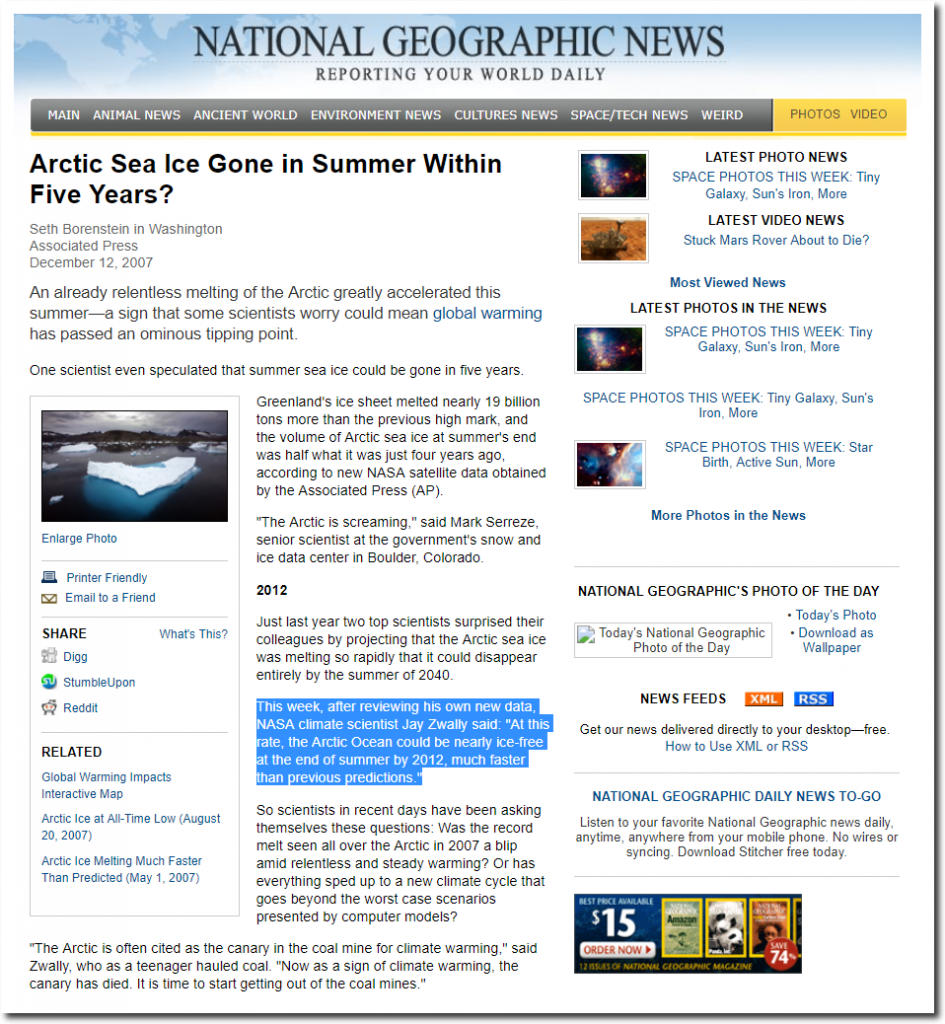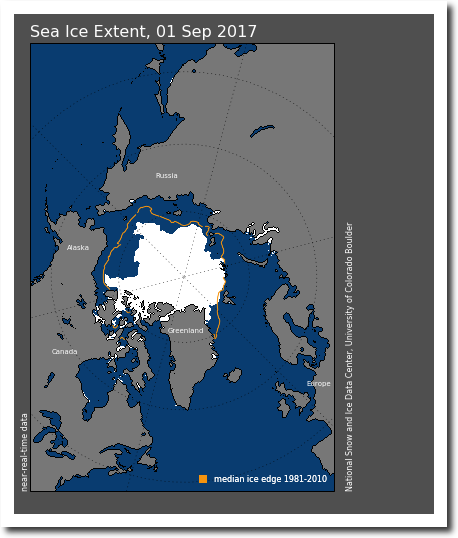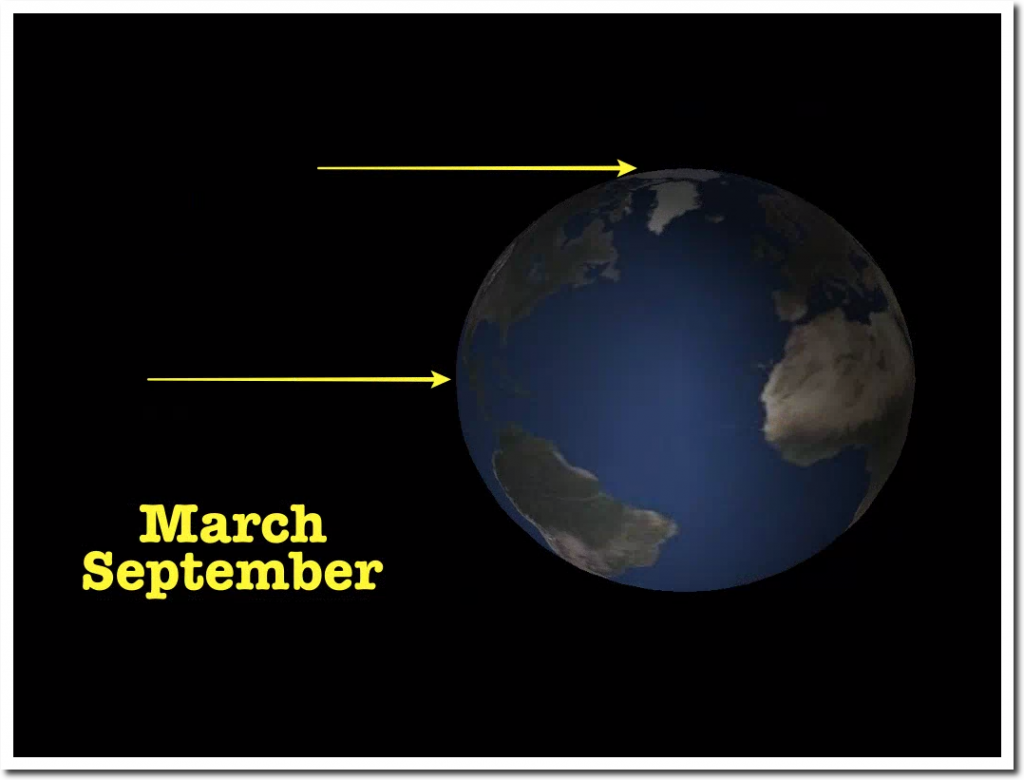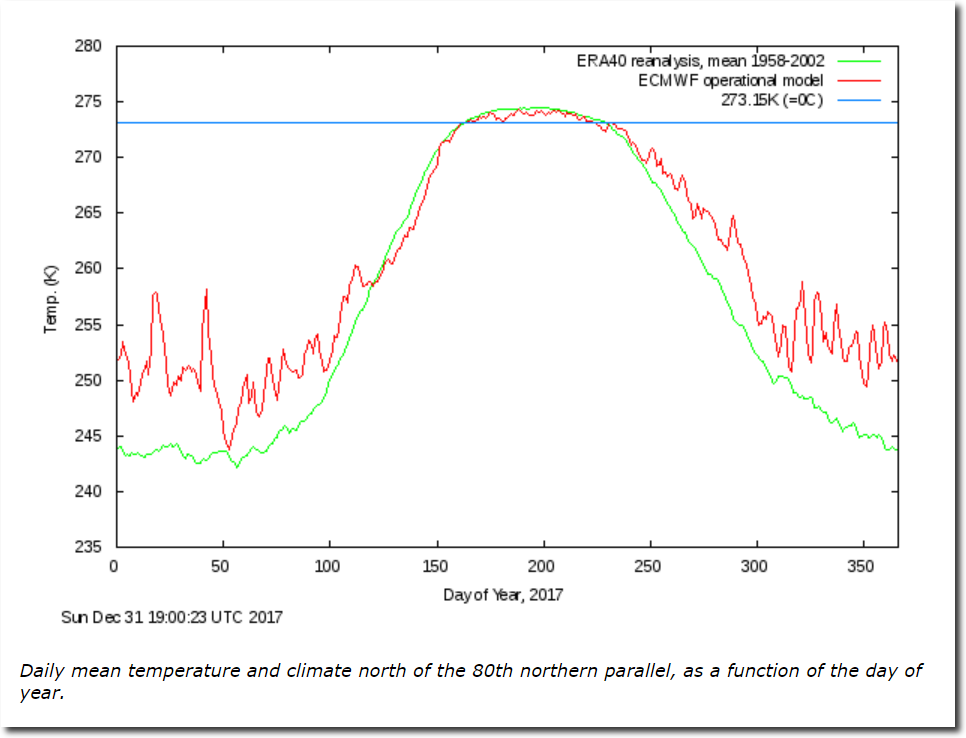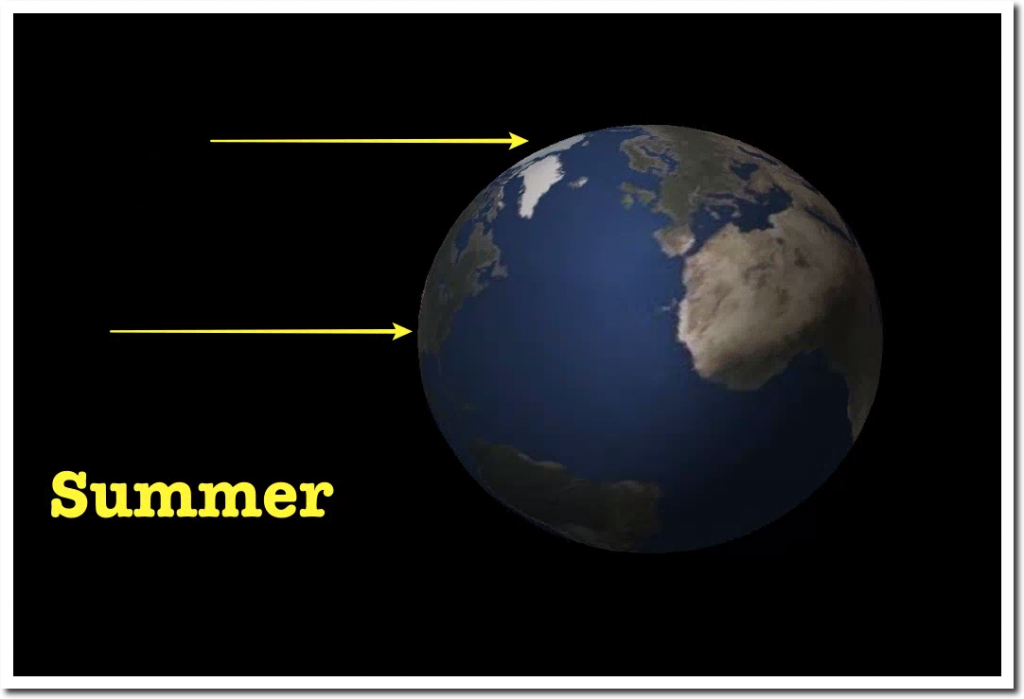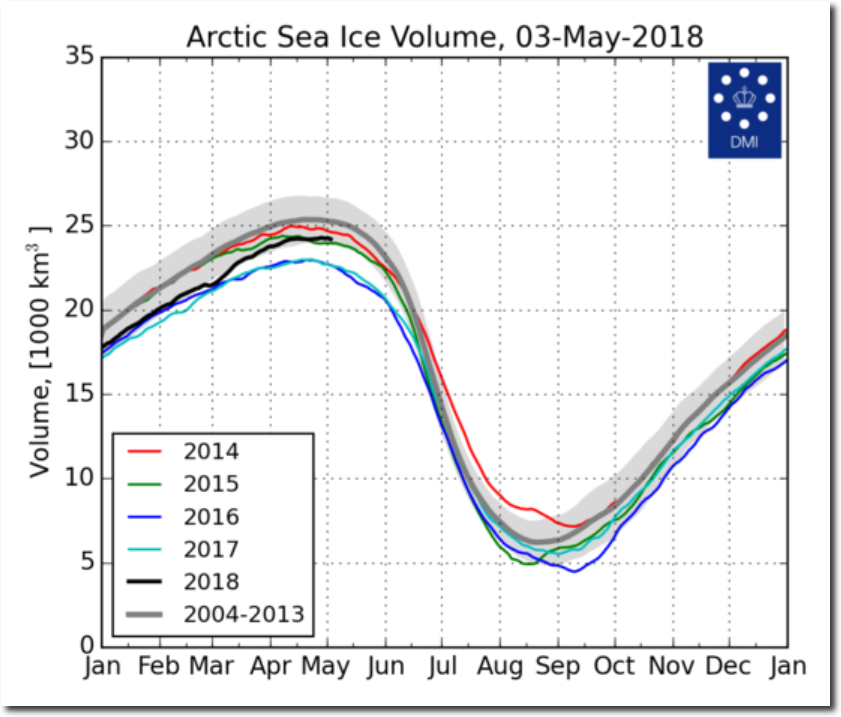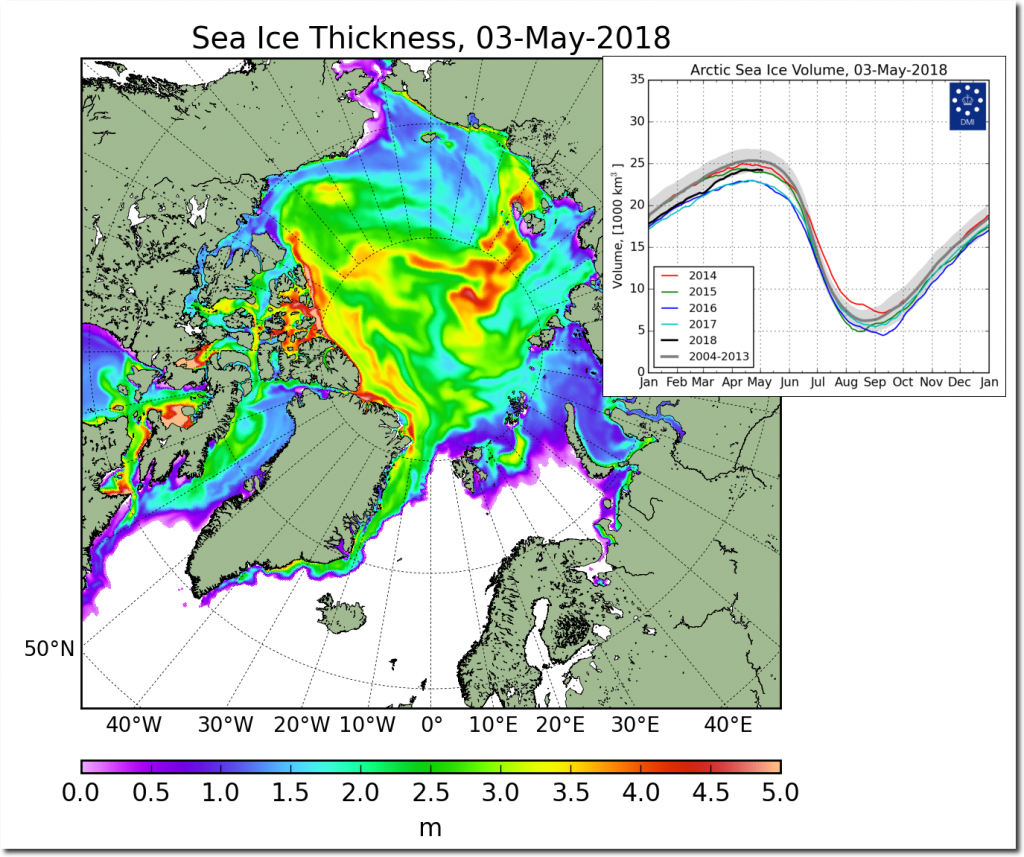Climate experts believe that the Arctic will become ice-free, because they don’t understand that the Earth is round.
The Argus-Press – Google News Archive Search
Arctic Sea Ice Gone in Summer Within Five Years?
They look at two dimensional maps like this one from September 1 last year, and imagine that the ice is going to keep melting back towards the pole.
N_20170901_extn_v3.0.png (420×500)
What they don’t understand is that the Earth is round, and that by September, the North Pole is receiving almost no sunlight. Thus there is no energy source to melt the ice.
By the end of August, temperatures north of 80N have dropped below freezing.
Ocean and Ice Services | Danmarks Meteorologiske Institut
The only time the pole can melt is a 70 day window in June, July and August, when the Northern Hemisphere is tipped towards the Sun.
Another important corollary of this is that the Arctic sea ice minimum and maximum are nearly irrelevant to climate, because they both occur near the equinox when no sunlight is reaching the pole. This time of year is important, because there is lots of sunlight, and the bright white ice reflects the Sun’s rays and cools the Earth. The whole concept of Arctic albedo feedback is based on junk science.
N_20180501_extn_v3.0.png (420×500)
Sea ice extent, thickness and volume are all normal, yet the Flat Earth Society of climate scientists drones on endlessly about an ice-free Arctic – which they will never live to see.
Ocean and Ice Services | Danmarks Meteorologiske Institut
FullSize_CICE_combine_thick_SM_EN_20180503.png (1337×1113)
FullSize_CICE_combine_thick_SM_EN_20180503.png (1337×1113)
Climate experts don’t seem to understand any of the fundamentals of chemistry, physics or geology – which is why are perfectly suited heroes for graduates of Common Core education.
Source
The Argus-Press – Google News Archive Search
Arctic Sea Ice Gone in Summer Within Five Years?
They look at two dimensional maps like this one from September 1 last year, and imagine that the ice is going to keep melting back towards the pole.
N_20170901_extn_v3.0.png (420×500)
What they don’t understand is that the Earth is round, and that by September, the North Pole is receiving almost no sunlight. Thus there is no energy source to melt the ice.
By the end of August, temperatures north of 80N have dropped below freezing.
Ocean and Ice Services | Danmarks Meteorologiske Institut
The only time the pole can melt is a 70 day window in June, July and August, when the Northern Hemisphere is tipped towards the Sun.
Another important corollary of this is that the Arctic sea ice minimum and maximum are nearly irrelevant to climate, because they both occur near the equinox when no sunlight is reaching the pole. This time of year is important, because there is lots of sunlight, and the bright white ice reflects the Sun’s rays and cools the Earth. The whole concept of Arctic albedo feedback is based on junk science.
N_20180501_extn_v3.0.png (420×500)
Sea ice extent, thickness and volume are all normal, yet the Flat Earth Society of climate scientists drones on endlessly about an ice-free Arctic – which they will never live to see.
Ocean and Ice Services | Danmarks Meteorologiske Institut
FullSize_CICE_combine_thick_SM_EN_20180503.png (1337×1113)
FullSize_CICE_combine_thick_SM_EN_20180503.png (1337×1113)
Climate experts don’t seem to understand any of the fundamentals of chemistry, physics or geology – which is why are perfectly suited heroes for graduates of Common Core education.
Source
